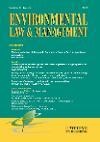Environmental Law and Management - Volume 31 - Issue 5

EDITORIAL
The law and ethics of ‘living with’ Coronavirus from an Earth jurisprudence perspective
BEN PONTIN
Cardiff Law School, Cardiff University
ARTICLES
Carbon capture and storage under the Paris Agreement: a legal appraisal of compatibility and opportunities
REZA MADDAHI
Centre for Climate, Energy and Environmental Law (CCEEL), University of Eastern Finland
Numerous reports by the Intergovernmental Panel on Climate Change have proposed carbon capture and storage deployment as a key climate change mitigation option. Lack of adequate and consistent support for it has, however, contributed to the slow pace of deployment to date. This study assesses the extent to which the Paris Agreement’s key concepts and provisions in this area facilitate the utilization of carbon capture and storage technology and the way in which the Agreement may influence steps taken to develop and deploy this technology. In this context, the central concepts of the Agreement are ‘ambition’ and ‘differentiation’. The study comprises a detailed critical analysis of the Paris Agreement’s most relevant provisions and offers a set of recommendations for the expansion of carbon capture and storage projects under it.
Fishing or fish farming: the conflict between a Crown grant of salmon fishings in the sea and other Crown rights in the sea in Scotland
CRISPIN AGNEW, QC
Honorary Research Fellow, University of Dundee
THOMAS APPLEBY
Associate Professor in Property Law, University of the West of England, Bristol
EMMA BEAN
Senior Lecturer in Property Law, University of the West of England, Bristol
PRIYAL BUNWAREE
Legal Coordinator, Blue Marine Foundation
There is a rising concern over the impact of aquaculture, particularly salmon farming, on the aquatic environment. Two Scottish parliamentary investigations have revealed concerns over the environmental impacts of the industry, particularly with regard to the potential hazard to wild salmonids. Many have pointed to regulatory complexity being a cause of the poor regulation. Representatives of the Crown Estate Scotland stated: ‘We have the right bits and pieces, but they have not been put together in the right order’. Yet it is the Crown which grants the leases of fish farms to their operators and therefore the Crown is where the ultimate responsibility for their impact sits. If changes to public controls are required, we must first fully understand the roles of the public agencies involved. Part one of this article examines the legal parameters of private rights of salmon fishing, considering the definition of ‘salmon’, the usual terms on which salmon fishing rights are granted in the sea and the legal extent of that right. Part two then examines how such rights operate in competition with other public and private rights in the sea or seabed and foreshore derived from the Crown. Part three finishes with a consideration of how to reconcile the competition of rights identified in part two.
Protection of ecological corridors in EU environmental law
MARCIN PCHAŁEK
The Environmental Law Center, Poland
PAULINA KUPCZYK
The Warsaw Bar Association, Poland
Legal protection of ecological corridors as the elements of natural environment is shaped by the system of norms, under, in particular, the branches of administrative law. The norms constitute a given system that, firstly, do not have a uniform legal nature, and secondly, are dispersed over various legal acts operating under international, EU and the Polish law. Throughout this article the authors present the ways in which the aforementioned structure of norms is included in EU legal acts, and assesses the nature and effectiveness of the established system.
Case Commentaries
Countdown to COP26: why does it matter?
CAROLINE BUSH
Osborne Clarke LLP, Bristol
The UK sixth carbon budget
MICHAEL GREEN, PAUL DAVIES and SABINA AIONESEI
Latham & Watkins, London
When is a policy not a policy? The Supreme Court on Heathrow expansion
DAVID HART, QC
1 Crown Office Row, London
EU Renewable Energy Financing Mechanism
LOUISE DALTON, DALIA MAJUMDER-RUSSELL
CMS Law, London
